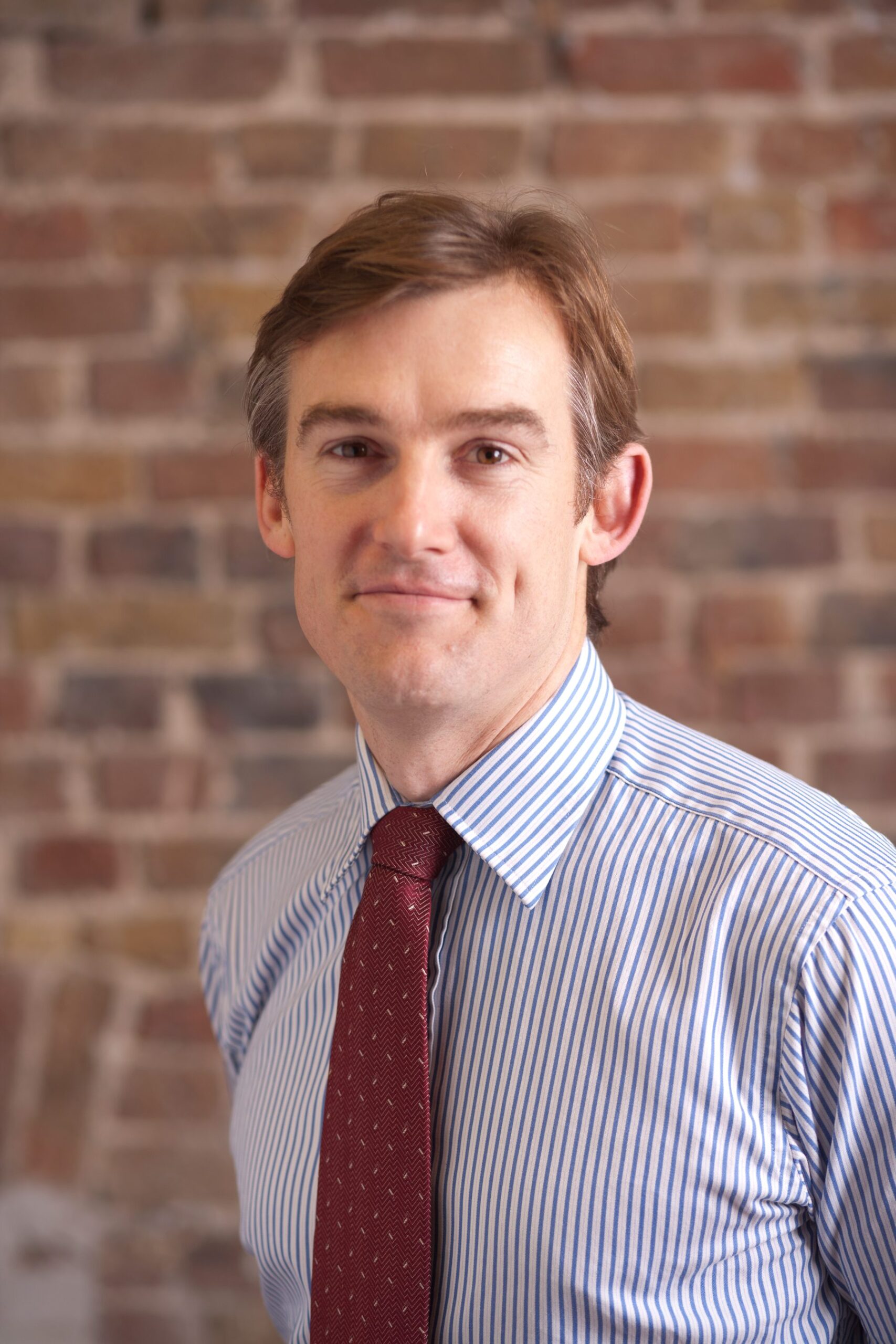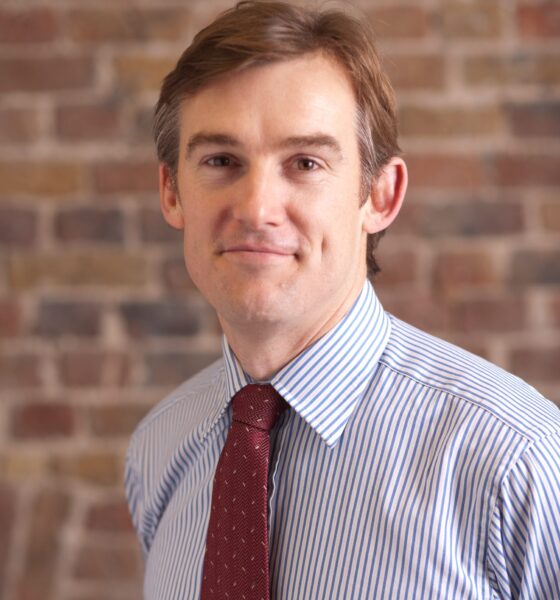

Features
Ethical investment pioneer: Mark Hoskin, Holden & Partners
We are into the penultimate day of National Ethical Investment Week (NEIW) 2013, and today’s ethical investment pioneer is Mark Hoskin of Holden & Partners.
He follows UKSIF chief executive Simon Howard, Sebastian Parsons of Stockwood Community Benefit Society, Paul Ellis of Ecology Building Society, James Vaccaro of Triodos Bank, Claudia Quiroz of Quilter Cheviot, John Ditchfield of Barchester Green and Clare Brook of WHEB Asset Management.
Financial advisory firm Holden & Partners is based in London. As well as being a partner in the company, Hoskin is also the founder of Worldwise Investor, which now is Blue & Green Investor and represents the investment section of Blue & Green Tomorrow.
Tell us about Holden & Partners. What’s your mission?
Whatever your aspirations or goals in life, we aim to make the most of your wealth. We provide comprehensive financial planning and investment management solutions, with expertise in ethical and green investment.
Our mission focuses on sustainability. We would like to see many more investors taking this seriously and we hope to that we are building a long-term sustainable business which will be around for many years to help and advise our clients.
What motivates you to do what you do?
I very much enjoy the relationships I have with my clients and because of the type of business we do I have the time to really understand what my clients need and to get into their tax and income positions. This suits my Chartered Accountant and Chartered Financial Planning background well.
However, I also have a real interest and motivation in helping build and develop a more sustainable economy from grassroots and really enjoy looking into and evaluating clean energy and environmental investment opportunities for clients.
The recent cluster of retail bonds from Good Energy (the Good Energy Bond), A Shade Greener Money (The Greener Bond) and CBD (the Energy Bond) provide the latest area to get my teeth into and try and make sense of to clients and get to the heart of the essential risks involved.
This is a big area where we can add value, rather than simply stating the now (in my opinion) meaningless risk warnings such as “your capital is at risk and you could lose all your money” which are written in various forms in every investment document you will ever read. Of course your capital is at risk, but how is this different from everything else?
What are the biggest challenges in building momentum for ethical finance?
What is ethical finance? Well, if we take it to be a very broad church which encourages positive social and environmental impact then in my opinion it is the culture of the investment industry which is its biggest obstacle. Cultural obstacles are the biggest challenge any organisation, or society faces in trying to change. What are we used to and what are we conditioned to accept and ignore?
In the UK, our culture is impacted in many different ways, from a government determined to have growth, growth and more growth (which is tricky given the world’s limited resources); from tax and finance regulation which conditions people to do what they did yesterday and from training and education which hasn’t permeated through society enough yet to infiltrate finance the way it should.
In many ways, it is generational change which will make the biggest difference as the 30 and 40-year-olds who have grown up to think of sustainability as an important part of the future become industry and financial leaders.
What trends or developments are you most excited about in sustainable and ethical investment?
I am most excited about the private equity offerings which are now available to finance real projects that you can touch and go and see.
The retail bonds I mentioned earlier are a part of this explosion in opportunity, but before these we had numerous enterprise investment schemes and venture capital trusts set up to finance renewable and energy efficient infrastructure.
We await the Financial Conduct Authority’s view which is due out now on crowdfunding which will either stifle, or encourage this trend of ordinary people wanting to be able to see and understand their investments much like they do when they buy their own house.
What one thing could change the future of finance?
Well we have had the financial crisis and other than governments deciding that they will print a lot of money, I am not sure it has revolutionised the financial system quite as much as we might think.
I like Clare Brook’s answer to this question in a previous interview, but I would say that if we could destroy the culture of following the herd then suddenly finance could make a huge difference to the world.
In my view the majority of investment managers do not really have to make any big decisions because they like everyone else are pseudo-tracking a ‘benchmark’, such as the FTSE 100. It is simply the culture of the finance markets. Equity indices are typically artificial constructs based simply on the size of the company as some measure of the desirability of everybody to invest in them. So they are to a large extent self-congratulatory and self-fulfilling.
So if I could change anything I would say let’s ban indices which are based on the market capitalisation (i.e. total value) of a stock.
Where do you want to take Holden & Partners next?
We have to build and grow the number of people interested in sustainability and wanting to find professionally qualified advisers with this extra expertise. Our challenge as a business is to develop the leads we receive to enable us to bring on staff to be advisers and thus create a sustainable business model which can go on for generations.
What can we, as individuals, do to make a difference?
I have said this before, but I feel that an investor, no matter their ethical persuasion, should look to try and invest 10% of their portfolio ‘sustainably’ because there are good financial reasons to do so.
If we all did this, what a difference we could make to the world and sustainable investment would be self-fulfilling. If National Ethical Investment Week could achieve this, we would see huge change for the better, get good financial returns and might properly address the climate change and environmental challenges we all face.
If you were prime minister for a day, what would be the first thing you’d do?
I think this question rather assumes that a prime minister can achieve something on his own! Well let’s assume we are in an autocratic system and my decision impacts globally.
I would outlaw indices based on market capitalisation to drive innovation and change through global investment markets. We would still see indices and tracker funds but not wedded to this idea that big is beautiful.
What’s the coolest project or product you’ve come across, and inspired you?
The world moves so fast and we forget how fast this change is. There are so many inspiring changes that are worth a mention and are inspirational to a generation of people – Google, Facebook, Twitter, LinkedIn are all game changing global innovations which have popped up in the last 15 years. Google only really started in 1998!
It is inspirational to think what started out with one or two people can literally change our culture and they can grow up to become some of the most successful companies in the world.
Can you recommend a life- or game-changing book for our readers?
The Grameen Bank by Muhammad Yunus. I was given this book many years ago by my aunt, well before he was given his Nobel peace prize. He developed the concept of microfinance from his university post in Bangladesh with his own money and he changed the culture of lending in the developing world. It is a great read, truly inspirational, tear-jerking and emotional and a book to keep us all very grounded.
Can you leave us with who’d be your ethical investment pioneer?
I am going to pick a grass roots person who no one will probably know, but who developed the practical concept of the ‘free residential solar panel’ in the UK and totally committed himself to it. He managed to persuade the banks, during the financial crisis, to lend him what amounts to now hundreds of millions so that today, he is still installing 200-300 solar panels a week through his company A Shade Greener Limited, despite the drastic cuts in the solar feed-in-tariff.
A Shade Greener has just launched the Greener Bond to raise finance for more of this type of installation.
It is entrepreneurs like Stewart Davies who change the world!
National Ethical Investment Week 2013 runs from October 13-19. Join the debate on Twitter using the hashtag #moneydoinggood.
Further reading:
‘Positive’ investment worth £1.6bn in the UK
63% of UK investors want to be offered sustainable investment options
£11 billion invested ethically in the UK: infographic analysis
Survey: environmental issues concern ethical investors the most


 Environment11 months ago
Environment11 months agoAre Polymer Banknotes: an Eco-Friendly Trend or a Groundswell?

 Features10 months ago
Features10 months agoEco-Friendly Cryptocurrencies: Sustainable Investment Choices

 Features11 months ago
Features11 months agoEco-Friendly Crypto Traders Must Find the Right Exchange

 Energy10 months ago
Energy10 months agoThe Growing Role of Solar Panels in Ireland’s Energy Future






























